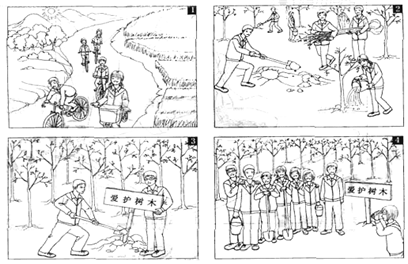17.We already know the fastest,least expensive way to slow climate change:Use less energy.With a little effort,and not much money,most of us could reduce our energy diets by 25percent or more-doing the Earth a favor while also helping our wallets.
Not long age.My wife,PJ,and I tried a new diet-not to lose a little weight but to answer an annoying question about climate change.Scientists have reported recently that the world is bending up even faster than predicted only a few years ago,and that the consequences could be severe if we don't keep reducing emissions(排放)of carbon dioxide(CO2)and other greenhouse gases that are trapping heat in our atmosphere.
We decided to try an experiment.For one month we recorded our personal emissions of CO2..We wanted to see how much we could cut back,so we went on a strict diet.The average US household(家庭)produces about 150pounds of CO2a day by doing common-place things like turning on air-conditioning or driving cars.That's more than twice the European average and almost five times the global average,mostly because Americans drive more and have bigger houses.But how much should we try to reduce?
For an answer,I checked with Tim Flannery,author of The Weather Makers:How Man Is Changing the Climate and What It Means for Life on Earth.In his book,he had challenged readers to make deep cuts in personal emissions to keep the world from reaching extremely important tipping points,such as the melting(融化)of the ice sheets in Greenland or West Antarctica."To stay below that point,we need to reduce CO2emissions by 80percent,"he said.
Good advice,I thought.I'd opened our bedroom windows to let in the wind.We'd gotten so used to keeping our air-conditioning going around the clock.I'd almost forgotten the windows even opened.We should not let this happen again.It's time for us to change our habits if necessary.
72.Why did the author and his wife try a new diet?B
A.To take special kinds of food
B.To respond to climate change.
C.To lose weight
D.To improve their health
73.The underlined words"tipping points"most probably refer toC
A.freezing points
B.burning points
C.melting points
D.boiling points
74.It can be inferred from the passage thatB
A.it is necessary to keep the air-conditioning on all the time
B.it seems possible for every household to cut emissions of CO2
C.the average US household produces about 3,000pounds of CO2a month
D.the average European household produces about 1,000pounds of CO2a month.
75.Which of the following would be the best title for the passage?
A
A.Saving Energy Starts at Home
B.Changing Our Habits Begins at Work
C.Changing Climate Sounds Reasonable
D.Reading Emissions of Proves CO2 Difficult.
分析 本文主要讲述了环保主题,作者认为每个家庭都可以很容易的通过减少空调使用等方法节能减排,我们的环境最终可以得到改善.
解答 72:B由第二段第一句"Not long age.My wife,PJ,and I tried a new diet-not to lose a little weight but to answer an annoying question about climate change."可知作者和妻子节食并不是为了减肥而是为了响应环保节能的号召,故正确答案为B.
73:C由第四段第二句"…tipping points,such as the melting(融化) of the ice sheets in Greenland or West Antarctica."可推断出 tipping points 所指内容与冰川融化有关,故正确答案为C.
74:B 文中作者进行了CO₂减排的尝试并且呼吁所有人都这么做,而且作者认为美国家庭因为开车太多住房太大所以二氧化碳排放才超标,所以对于他们来说减排是可能的,所以B项符合文意.由最后一段第二句"We'd gotten so used to keeping our air-conditioning going around the clock.I'd almost forgotten the windows even opened."可知人们不应总是开空调,所以A项错误.由"The average US household(家庭) produces about 150 pounds of CO₂a day"可知该数据应为4500,所以C项错误.从文中不能计算出欧洲家庭平均每月排放多少二氧化碳,所以D项错误.故正确答案为B.
75:A主旨题.本文主要讲述了环保主题,作者认为每个家庭都可以很容易的通过减少空调使用等方法节能减排,结合选项,所以A项符合文意.
点评 本文是科教类阅读理解.做这类题材阅读理解时要求考生对文章通读一遍,做题时结合原文和题目有针对性的找出相关语句进行仔细分析,结合选项选出正确答案.推理判断题也是要在抓住关键句子的基础上合理的分析才能得出正确答案,切忌胡乱猜测,一定要做到有理有据.



